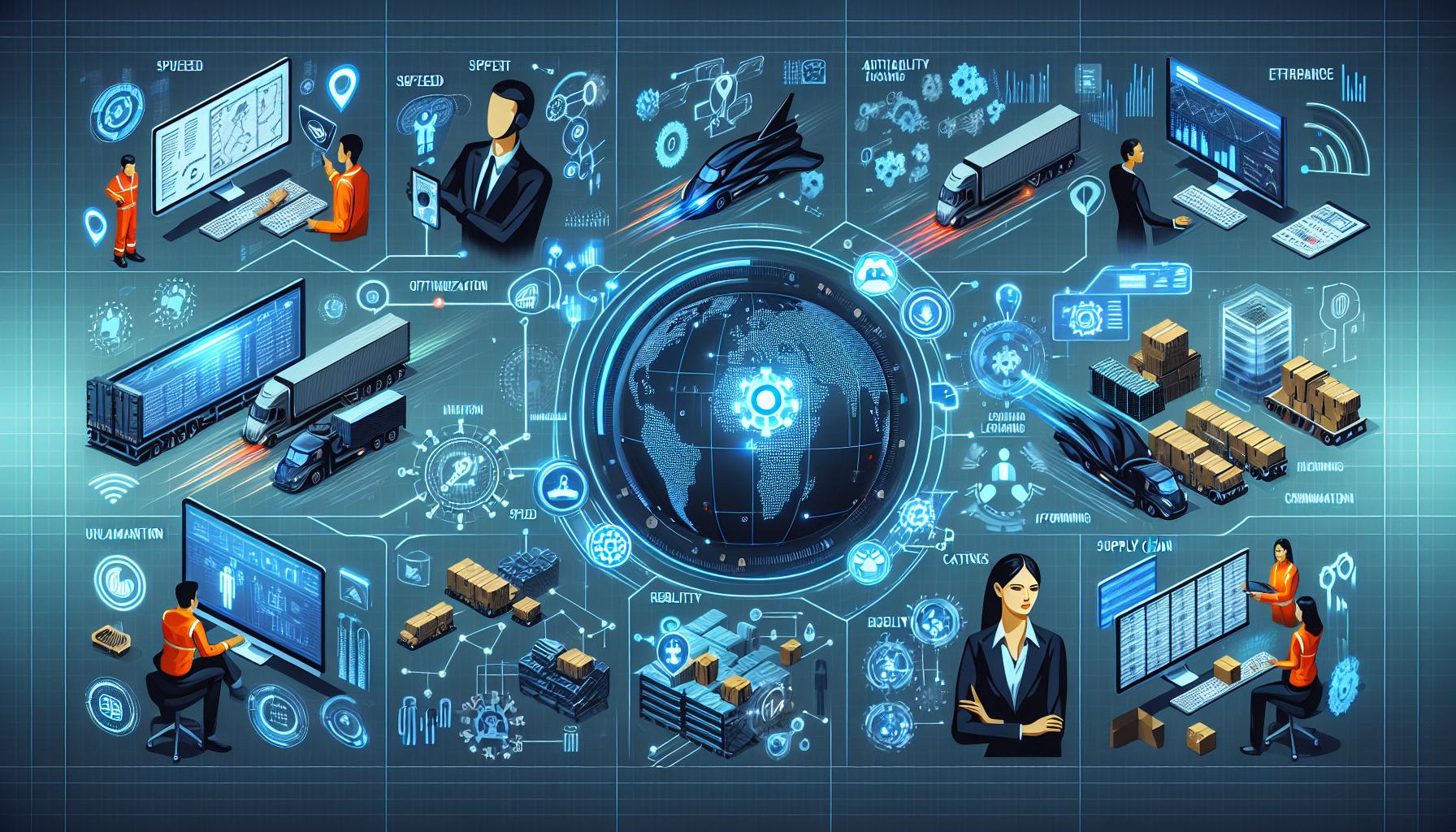Transforming Logistics Software with AI-Driven Automation

Introduction
The logistics industry is at the forefront of technological innovation, and the integration of AI-driven automation is proving to be a game-changer. As businesses strive to enhance efficiency and reduce costs, the use of AI agents in logistics software is gaining traction. These AI agents can manage complex logistics workflows, optimize route planning, and integrate supply chain information, thereby massively improving operational efficiency. However, while AI offers significant advantages, human oversight remains crucial for critical decision-making, ensuring flexibility and adaptability in the face of unforeseen circumstances.
AI Agents Revolutionizing Logistics Workflows
AI agents are transforming logistics workflows by automating repetitive tasks and providing real-time data analytics. These intelligent systems can process vast amounts of data, identifying patterns and trends that human operators might miss. By doing so, AI agents can streamline processes such as inventory management, order processing, and shipment tracking. For instance, AI-powered software for client management can help logistics firms manage customer relationships more effectively, ensuring timely deliveries and improved customer satisfaction.
Optimizing Route Planning with AI
Route planning is a critical aspect of logistics that directly impacts delivery times and costs. AI-driven automation in logistics software can optimize route planning by analyzing traffic patterns, weather conditions, and other variables in real-time. This allows logistics companies to choose the most efficient routes, reducing fuel consumption and delivery times. For example, scalable AI solutions can dynamically adjust delivery routes based on real-time traffic data, ensuring that drivers take the fastest and most efficient paths.
Integrating Supply Chain Information
One of the most significant advantages of using AI in logistics is its ability to integrate supply chain information seamlessly. AI agents can analyze data from various sources, providing a comprehensive view of the supply chain. This integration enables logistics firms to make informed decisions, anticipate potential disruptions, and optimize their operations. By leveraging AI-powered CRM and lead management systems, companies can improve communication with suppliers and customers, ensuring a smooth flow of goods and information across the supply chain.
Human Oversight in AI-Driven Logistics
While AI agents offer numerous benefits, human oversight remains essential, particularly when it comes to critical decision-making. In scenarios where supply chain strategies need to be altered due to unforeseen circumstances, human intervention ensures that logistics firms can adapt quickly and effectively. By combining the analytical capabilities of AI with human intuition and experience, companies can achieve a balance between automation and flexibility, leading to more resilient logistics operations.
Real-World Use Cases
Several logistics firms have successfully leveraged AI for real-time data analytics and dynamic delivery systems, achieving significant improvements in speed, reliability, and cost savings. For instance, some companies have implemented AI-powered live chat solutions to enhance customer support, providing real-time assistance and reducing response times. Others have used AI integration platforms to connect various logistics tools, enabling seamless data sharing and collaboration across departments.
One notable example is a logistics company that used AI to optimize its warehouse operations. By implementing AI-driven automation, the company was able to reduce picking times, minimize errors, and improve overall efficiency. This not only led to cost savings but also enhanced customer satisfaction by ensuring faster and more accurate deliveries.
Conclusion
The integration of AI-driven automation in logistics software is transforming the industry, offering significant improvements in efficiency, speed, and cost savings. By leveraging AI agents for workflow management, route optimization, and supply chain integration, logistics firms can enhance their operations and remain competitive in a rapidly evolving market. However, the importance of human oversight cannot be overstated, as it ensures flexibility and adaptability in the face of unforeseen challenges.
As AI technology continues to advance, the future of logistics looks promising, with even more innovative solutions on the horizon. Companies that embrace AI-driven automation today will be well-positioned to capitalize on these advancements, leading to greater success and sustainability in the long run. For those looking to stay ahead of the curve, investing in AI solutions for logistics is not just an option; it's a necessity.
FAQs
Q: How does AI improve route planning in logistics?
A: AI improves route planning by analyzing real-time data such as traffic patterns and weather conditions, allowing logistics companies to choose the most efficient routes and reduce delivery times and costs.
Q: What role does human oversight play in AI-driven logistics?
A: Human oversight is crucial for critical decision-making, especially when supply chain strategies need to be altered due to unforeseen circumstances. It ensures flexibility and adaptability in logistics operations.
Q: Can AI agents help with supply chain integration?
A: Yes, AI agents can integrate supply chain information from various sources, providing a comprehensive view that enables logistics firms to make informed decisions and optimize their operations.
Q: What are some real-world examples of AI in logistics?
A: Real-world examples include AI-powered live chat solutions for customer support, AI integration platforms for seamless data sharing, and AI-driven automation for optimizing warehouse operations.
Q: Why is AI-driven automation important for logistics firms?
A: AI-driven automation is important because it enhances efficiency, speed, and cost savings, allowing logistics firms to remain competitive and meet the demands of a rapidly evolving market.




